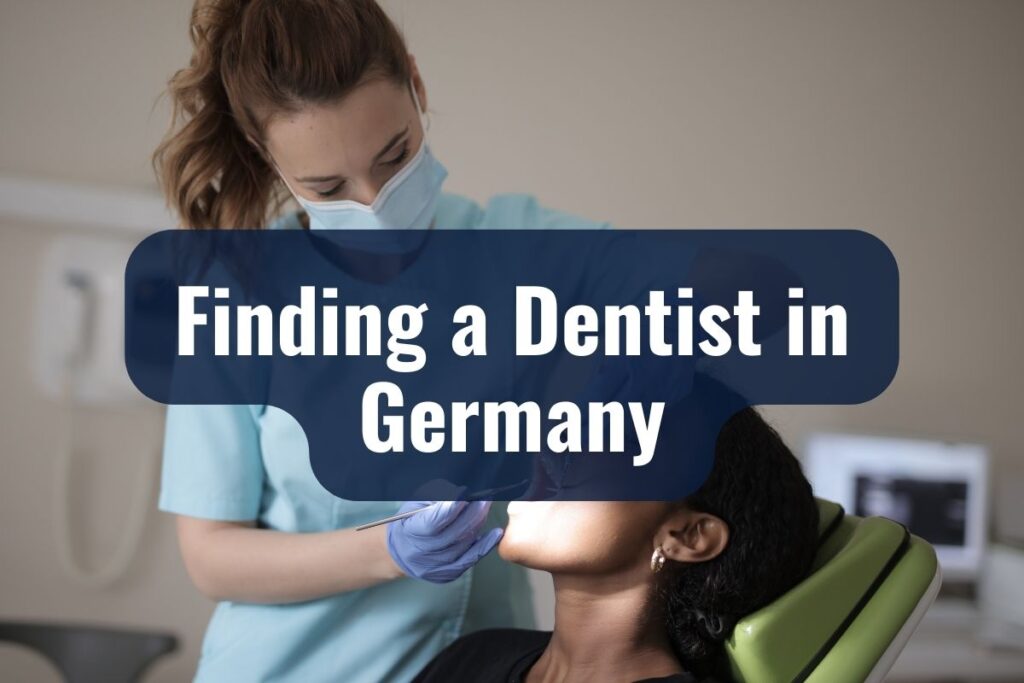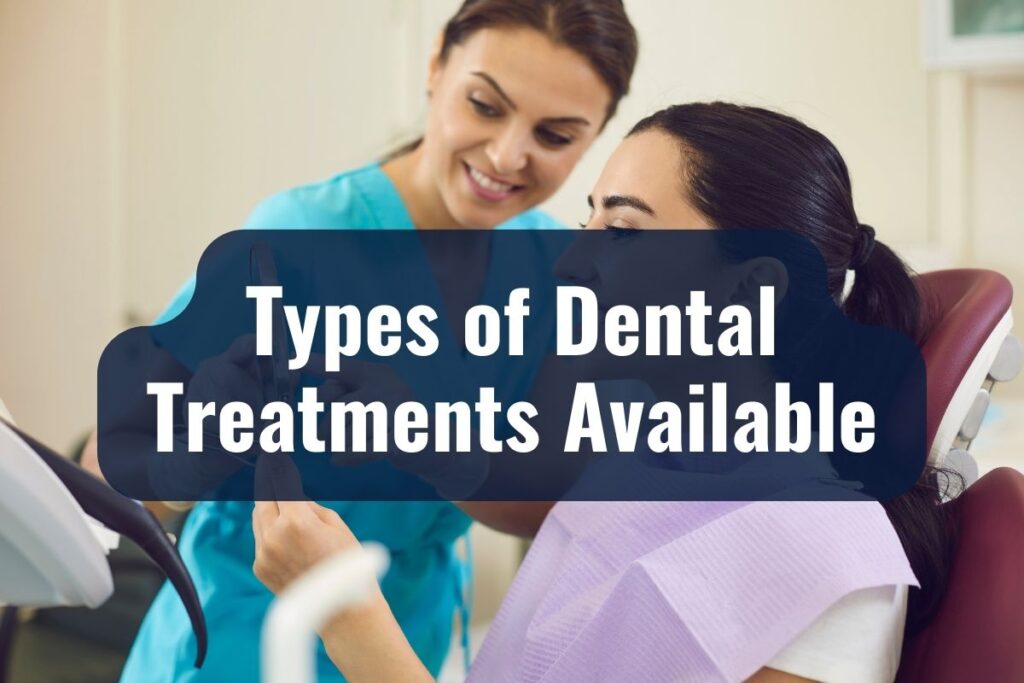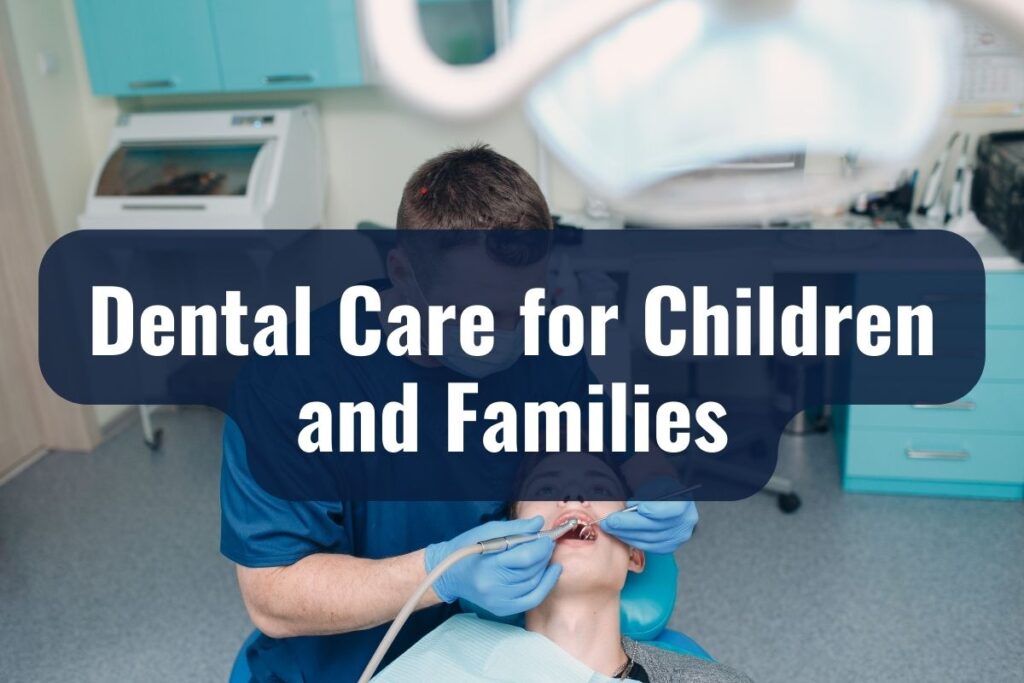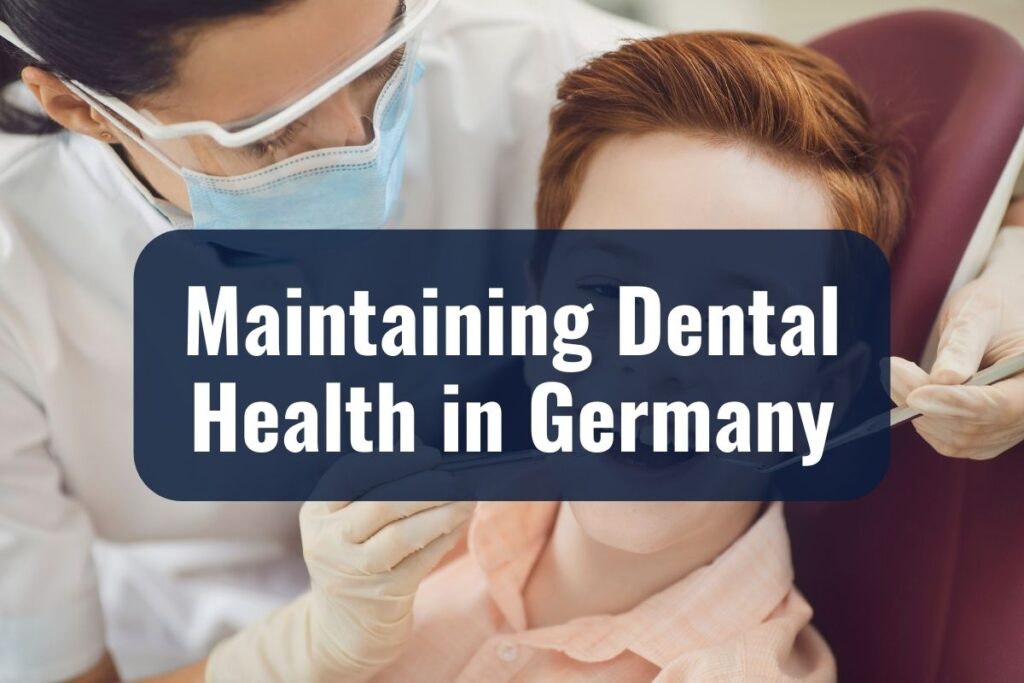In this article, we will provide you with clear, helpful information to ensure your dental care experience in Germany is as smooth and stress-free as possible. Let’s dive into the world of German dental care, tailored for those who might not yet be ‘fließend’ (fluent) in German.
Key Takeaways
- Germany offers high-quality dental care with options for both public and private insurance coverage.
- Finding English-speaking dentists and understanding their qualifications is essential for expats.
- Scheduling appointments requires awareness of the documents needed and cultural nuances in communication.
- A wide range of dental treatments is available, from routine care to advanced and cosmetic procedures.
- In dental emergencies, knowing how to access urgent care and understanding insurance coverage is crucial.
- Pediatric dental care focuses on preventive treatments and regular check-ups for children.
Challenges for Non-German Speakers
As a resident or expat in Germany, you might find the local healthcare system complex and sometimes daunting. This is particularly true when it comes to dental care, where language barriers can add an extra layer of difficulty. We aim to simplify this process for you.
Understanding the German Dental Care System
Navigating the healthcare system in a new country can be a complex endeavor. In Germany, the dental care system is integrated into a broader healthcare framework that is renowned for its efficiency and quality.
Overview of the German Healthcare System
Germany’s healthcare system is one of the oldest and most developed in the world. It operates on a dual model, comprising both public (gesetzliche Krankenversicherung, or GKV) and private (private Krankenversicherung, or PKV) health insurance. Every resident in Germany is required by law to have health insurance, which also covers basic dental care.
Public vs. Private Dental Insurance
Understanding the difference between public and private dental insurance is crucial to making informed decisions about your dental care.
| Aspect | Public Insurance | Private Insurance |
| Coverage | Covers basic care, routine check-ups, and standard treatments | Offers comprehensive coverage, including advanced and cosmetic treatments |
| Costs | Lower premiums, co-payments for some procedures | Higher premiums, more extensive coverage |
| Appointment Availability | Standard waiting times for appointments | Often quicker appointment scheduling |
| Reimbursement | Direct billing with health card, partial coverage for complex procedures | May require upfront payment and reimbursement, broader procedure coverage |
Public Dental Insurance: Most residents in Germany are covered by public health insurance, which provides a standard level of dental care, including routine check-ups, basic cleanings, and standard fillings. However, it may not cover more complex procedures or cosmetic dentistry.
Private Dental Insurance: Private insurance offers more comprehensive coverage, including advanced and cosmetic dental treatments. It is generally chosen by those with higher incomes or specific dental needs. Private insurance often allows for quicker appointment scheduling and access to a broader range of dental services.
Role of Krankenkassen in Dental Care
‘Krankenkassen’ or health insurance companies play a pivotal role in the German dental care system. They are responsible for covering the costs of basic dental care and partially covering more extensive treatments. It’s important to understand what your Krankenkasse covers in terms of dental services to avoid unexpected expenses.
Reimbursement Process
For certain dental treatments, particularly those not fully covered by public insurance, you may need to pay upfront and then seek reimbursement from your Krankenkasse. Always check the coverage details and reimbursement process before proceeding with treatment.
Additional Dental Insurance
Some residents opt for additional dental insurance (Zahnzusatzversicherung) to cover the costs not included in their primary health insurance. This can be particularly helpful for expensive treatments like orthodontics or implants.
Finding a Dentist in Germany

Locating the right dentist is a crucial step in your dental care journey in Germany. The country boasts a high standard of dental practices, but finding one that suits your specific needs, especially if you’re not fluent in German, can seem challenging. Let’s explore how to simplify this process.
Tips on Finding English-Speaking Dentists
Utilize Online Directories
Many online directories list English-speaking dentists in Germany. These platforms often provide detailed information about the dentist’s qualifications, specializations, and languages spoken.
Expatriate Forums and Communities
Engaging with expat communities can be incredibly helpful. Fellow expats often share recommendations and experiences about English-speaking dental services.
Check with Your Embassy
Some embassies compile lists of healthcare providers, including dentists, who can communicate in English.
Understanding Dentist Qualifications and Specializations
In Germany, dentists are highly trained professionals. After completing their studies, they are required to undergo several years of practical training before practicing independently.
Specializations: Like elsewhere, German dentists may specialize in areas like orthodontics, periodontics, or cosmetic dentistry. If you have specific dental needs, look for a specialist in that area.
Credentials and Accreditation: Dentists in Germany are accredited by the ‘Kassenzahnärztliche Vereinigung’ (Association of Statutory Health Insurance Dentists). This ensures a standard of quality and expertise.
Using Online Directories
Online Directories: Websites like ‘jameda.de‘ and ‘Doctolib.de‘ are popular for finding healthcare providers, including dentists. You can filter your search based on language, location, and specialization.
Booking an Appointment
Once you find a suitable dentist, booking an appointment is the next step. This can often be done online or via phone. If you’re booking over the phone and are concerned about language barriers, consider preparing a script or asking a German-speaking friend to assist.
Scheduling an Appointment and Preparing for Your Visit
Once you have identified a suitable dentist, the next step is to schedule an appointment and prepare for your visit. This process, while straightforward, requires some attention to detail, especially considering the language and administrative aspects.
Steps to Schedule a Dental Appointment
Contacting the Dental Office
You can schedule an appointment either by calling the dental office directly or, in many cases, through online booking systems. If you’re apprehensive about language barriers, many dental offices have staff who speak English, especially in urban areas.
Preferred Dates and Times
Be ready to provide your preferred dates and times. Dental clinics in Germany typically operate on weekdays, with some offering extended hours or Saturday appointments to accommodate working professionals.
Emergency Appointments
If you have a dental emergency, let the clinic know immediately. Most clinics have provisions for urgent cases.
What to Expect During the First Visit
Initial Consultation: The first visit often includes a consultation, where the dentist will discuss your dental history, current issues, and any specific needs or concerns you might have.
Dental Examination: A comprehensive dental examination will likely be conducted, which may include X-rays or other diagnostic procedures.
Treatment Plan Discussion: If any treatments are needed, your dentist will discuss the options, process, and costs with you. Feel free to ask questions to ensure you fully understand the proposed treatments.
Necessary Documents and Insurance Information to Bring
Health Insurance Card: Bring your electronic health insurance card (‘Gesundheitskarte’). This is essential for billing and insurance purposes.
Identification: A form of identification, such as a passport or resident permit, is usually required.
Medical History: If available, bring along your dental and medical history records, especially if you have specific ongoing conditions or allergies.
Language Assistance: If you’re concerned about language barriers, consider bringing a friend who speaks German or using a translation app. Some clinics may also offer translation services.
Cultural Considerations
Understanding cultural norms in a German dental practice can enhance your experience. Punctuality is highly valued, so ensure you arrive on time. Also, be prepared for a more direct communication style, which is typical in German healthcare settings.
Types of Dental Treatments Available

Germany is known for its advanced and comprehensive dental care. Understanding the types of treatments available will help you navigate your dental health needs more effectively.
Common Dental Procedures
Routine Check-ups and Cleanings
Regular check-ups, including teeth cleaning, are fundamental to dental care in Germany. These appointments typically involve a thorough examination, cleaning, and sometimes X-rays.
Fillings and Restorations
Treating cavities with fillings is a standard procedure. German dentists often use modern materials like composite resins for a natural look.
Root Canal Treatments
These are performed to treat infected or damaged teeth. German dental clinics are equipped with the latest technology to ensure effective and less invasive treatments.
Advanced Dental Care
Crowns, Bridges, and Dentures: For more extensive restorative work, German dentists offer options like crowns, bridges, and dentures, using materials that match the natural appearance of your teeth.
Implants: Dental implants are widely available and are used to replace missing teeth. They provide a durable and long-term solution.
Orthodontics: This includes braces and other treatments for aligning and straightening teeth, available for both adults and children.
Cosmetic Dental Care
Teeth Whitening: A popular cosmetic procedure, teeth whitening is readily available in most dental clinics.
Veneers: For those looking to enhance their smile, veneers offer a way to improve the appearance of the teeth.
Understanding Costs and Insurance Coverage
Public Insurance Coverage: Basic dental care, including routine check-ups and standard fillings, is covered by public health insurance. However, more complex procedures might only be partially covered.
Private Insurance and Additional Costs: Private insurance typically offers broader coverage, including for cosmetic procedures. It’s important to check with your insurance provider about the specifics of your coverage.
Out-of-Pocket Expenses: For treatments not covered by insurance or for those with higher co-payments, be prepared to discuss costs with your dentist beforehand.
Emergency Dental Care in Germany
Dental emergencies require prompt attention, and Germany offers several options to ensure you get the care you need quickly. Understanding how to navigate these situations, especially as a non-native speaker, is crucial for effective and timely treatment.
How to Handle Dental Emergencies
Identifying a Dental Emergency: Common dental emergencies include severe toothache, broken or knocked-out teeth, and infections. If you experience any of these, it’s important to seek immediate care.
Contacting Your Dentist: If the emergency occurs during regular office hours, your first call should be to your dentist. They can often accommodate emergency appointments or direct you to the appropriate services.
After-Hours and Weekend Emergencies: In case of an after-hours emergency, you can contact the dental emergency service (‘zahnärztlicher Notdienst’). This service provides information on available emergency dentists in your area.
Contacting Emergency Services
Emergency Numbers: In a severe emergency, such as trauma or uncontrolled bleeding, you should call the general emergency number 112. They can provide immediate assistance and direct you to the nearest emergency facility.
Finding Urgent Dental Care: Hospitals with 24-hour emergency rooms often have dental departments that can handle urgent cases.
Insurance Coverage for Emergency Dental Treatments
Public Health Insurance: Public insurance typically covers emergency dental care. However, it’s important to check with your insurer about specific coverage details.
Private Insurance Considerations: If you have private insurance, ensure you understand the extent of your emergency coverage, as policies may vary.
Billing and Reimbursement: Keep all receipts and documentation from your emergency treatment, as these are necessary for insurance claims or reimbursements.
Tips for Non-German Speakers
Language Assistance: In an emergency, it may be challenging to communicate in a non-native language. Utilize translation apps or ask for English-speaking staff. Some emergency services also offer multilingual support.
Preparing for Emergencies: It’s advisable to have a plan in place for dental emergencies. This includes knowing the contact details of your dentist, the nearest emergency dental service, and understanding your insurance coverage.
Dental Care for Children and Families

Ensuring proper dental care for children and families is a key aspect of healthcare in Germany. Navigating pediatric dental services can be different from adult care, especially in understanding the specific needs and services available for children.
Special Considerations for Pediatric Dental Care
Finding a Pediatric Dentist
In Germany, pediatric dentists (‘Kinderzahnarzt’) specialize in caring for children’s dental needs. They are trained to handle the unique challenges and anxieties that children may face during dental visits.
First Dental Visit
It is recommended to have the first dental check-up by the child’s first birthday or when the first tooth appears. Early visits help in establishing a dental home and promoting healthy oral habits from a young age.
Regular Check-ups and Preventative Care
Regular dental check-ups are crucial for children. These visits often include cleaning, fluoride treatments, and monitoring the development of teeth and jaws.
Finding Family-Friendly Dental Practices
Comfortable Environment: Look for dental practices that offer a child-friendly environment. This can include having a play area, child-friendly decor, and staff experienced in dealing with children.
Language Considerations: If language is a concern, seek practices that offer services in English or have multilingual staff. This ensures that both you and your child can communicate comfortably and understand the procedures and advice given.
Preventative Care and Regular Check-ups for Children
Educational Resources: Many pediatric dentists provide educational materials and guidance on how to maintain good oral hygiene at home, including proper brushing and flossing techniques.
Sealants and Fluoride Treatments: These preventive treatments can help protect children’s teeth from decay.
Monitoring Growth and Development: Regular visits allow the dentist to monitor the growth and alignment of teeth and jaws, providing timely intervention if orthodontic treatment is needed.
Dental Insurance for Children
Coverage Under Public Insurance: In Germany, public health insurance typically covers most pediatric dental services, including preventative treatments.
Additional Private Insurance: Some parents opt for additional private insurance to cover orthodontic treatments or other specialized services not fully covered by public insurance.
Language barriers can present a significant challenge when accessing dental care in a non-native country. In Germany, while many healthcare professionals speak English, especially in larger cities, there can still be instances where language differences pose a hurdle.
Tips for Communicating with Dental Staff
Basic German Phrases: Learning some basic dental-related German phrases can be helpful. Phrases like “Ich habe Schmerzen” (I have pain) or “Können Sie das bitte wiederholen?” (Can you please repeat that?) can be useful.
Translation Apps: Utilize translation apps for more complex conversations or to understand specific terms. These apps can be a valuable tool for bridging the language gap.
Pre-appointment Communication: If you’re concerned about language barriers, contact the dental office beforehand to inquire about English-speaking staff. This can also give you a sense of the office’s willingness to accommodate language needs.
Use of Translation Services and Apps
Professional Translation Services: Some dental offices may offer access to professional translation services. This can be particularly useful for complex treatments or detailed discussions about dental health.
Online Translation Tools: For simpler interactions, online translation tools can suffice. Tools like Google Translate or DeepL can provide quick translations of terms and phrases.
Cultural Considerations in Patient-Caregiver Communication
Understanding German Medical Culture
German healthcare professionals tend to be straightforward and to the point in their communication. Understanding this cultural aspect can help in interpreting interactions and responses.
Seeking Clarification
Don’t hesitate to ask for clarification if something is not clear. It’s important to fully understand your dental treatment, aftercare instructions, and any other relevant information.
Bringing a Friend or Family Member
If possible, consider bringing someone fluent in German with you to your appointment. This can provide additional support in understanding and communicating effectively.
Maintaining Dental Health in Germany

Good dental health is a crucial part of overall well-being. In Germany, with its high standard of dental care, maintaining oral health can be straightforward if you follow recommended practices and utilize available resources. Here are some key aspects to consider for keeping your teeth and gums healthy during your stay in Germany.
Regular Dental Hygiene Practices
Daily Oral Care
Brushing twice a day with fluoride toothpaste and flossing daily are fundamental practices recommended by German dentists. This routine helps prevent tooth decay and gum disease.
Balanced Diet
Consuming a balanced diet and limiting sugary snacks and beverages are also important for dental health. German nutrition guidelines can provide a good reference for a teeth-friendly diet.
Avoiding Tobacco Products
Smoking and the use of other tobacco products are known to adversely affect oral health. Reducing or quitting these habits can significantly improve your dental well-being.
Importance of Regular Check-Ups and Preventative Care
Regular Dental Visits: Scheduling regular check-ups with your dentist is key to maintaining oral health. These visits typically include a professional cleaning, an examination for cavities, and an assessment of your overall dental health.
Preventive Treatments: Discuss preventive treatments like fluoride applications or dental sealants with your dentist. These can provide added protection against tooth decay.
Resources for Further Information and Support
Educational Materials: Many dental clinics provide educational materials on proper oral hygiene techniques and dental health tips.
Online Resources: Websites like the German Dental Association (Bundeszahnärztekammer) offer valuable information on dental care practices in Germany.
Expat Support Groups: Joining expat forums or groups can provide insights and recommendations from others who have navigated the German dental care system.
Insurance Advisors: For detailed information on health insurance coverage for dental care, you can consult with insurance advisors who are experienced in expat needs. They can guide you in choosing the right insurance plan and understanding the coverage for dental treatments.


